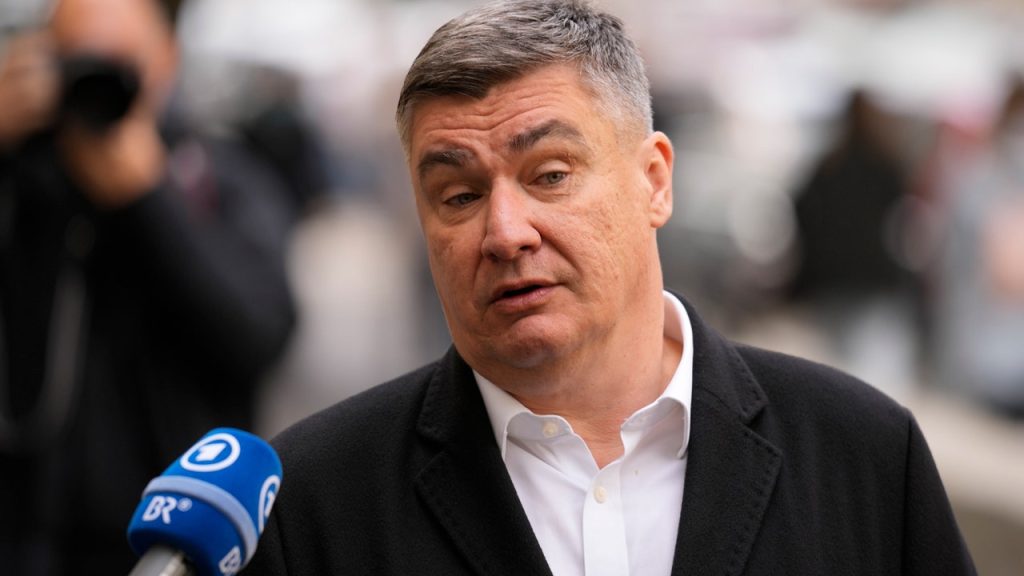The Constitutional Court of Croatia has banned President Zoran Milanović from becoming prime minister in the event that his Social Democratic Party wins a majority following the recent parliamentary election. Despite the ruling center-right Croatian Democratic Union winning the most votes, no party secured enough seats to form a government on its own. Milanović had announced his intention to run for prime minister shortly after the election was called, but failed to resign beforehand as required by the court. The president and his party have criticized the court’s decision, arguing that the will of the people should determine the country’s leadership, not judicial interference.
The ruling has sparked a political controversy in Croatia, with Milanović and the SDP denouncing the court’s authority to prevent him from becoming prime minister. They have called on other opposition groups to join together and form a new government without the ruling HDZ party. Milanović has accused the current Prime Minister, Andrej Plenković, of corruption, further escalating tensions between the two political factions. The parliamentary election, which ended inconclusively, is seen as a crucial test ahead of upcoming European Parliament elections in June.
There is concern that if Milanović were to form a government, his critical stance on EU policies and potential pro-Russia influence could shift Croatia towards a similar path as neighboring countries like Hungary and Slovakia. The HDZ party currently holds a significant lead with 61 parliamentary seats, compared to the SDP’s 42 seats. The far-right Homeland Movement, with 14 seats, has emerged as a key player in potential coalition negotiations. Despite suggestions that Milanović could resign as president and then become prime minister, the Constitutional Court has made it clear that he is barred from holding both positions concurrently.
Critics of the court’s decision, including opposition politicians and former Prime Minister Jadranka Kosor, have accused the institution of being influenced by the ruling conservatives. Leftist politician Dalija Orešković has characterized Croatia’s top court as one of many “captured institutions” in the country. The HDZ has maintained a stronghold on power in Croatia since the nation’s independence, and the upcoming presidential election later this year is expected to further intensify political tensions. Croatia joined the EU in 2013 and has since become a member of the eurozone and Europe’s passport-free travel area, highlighting the country’s growing importance in European politics.


